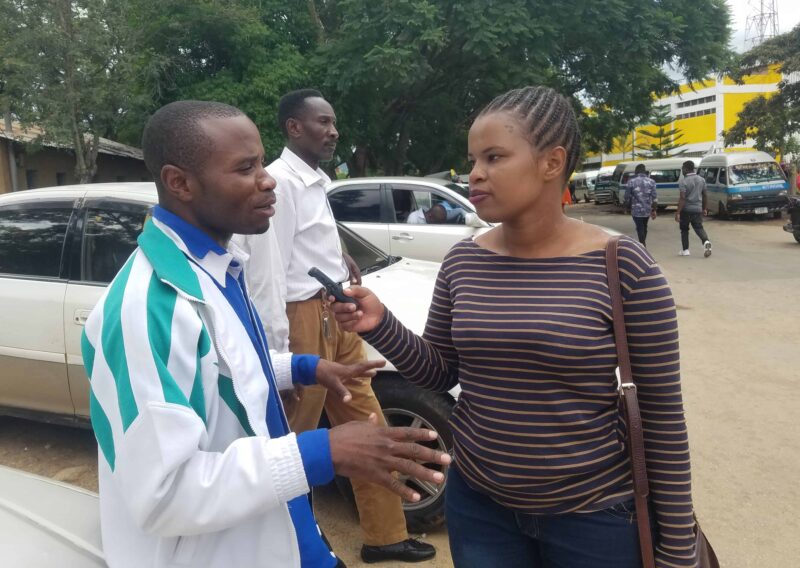It is the dream of every journalist to put together a story that has impact on the public he or she serves. Herieth Rebman, a reporter with Country FM, was practicing her reporting skills after a hands-on Internews training, when her dream was fulfilled. The taxi drivers she was interviewing in Iringa municipality began talking to her about the unfair parking charges they had to pay.
Her first reaction was to doubt the drivers, thinking they were making up the accusations to evade parking fees. So she asked for receipts showing the amount they claimed was being unfairly charged.
After scrutinizing them, Herieth grew more curious and decided to check out a different taxi park to see if they had the same problem – parking attendants charging more than the government-negotiated rate. She encountered similar complaints, with the receipts showing similar amounts.
“At first I didn’t know if I would be able to write the story that would uncover the loopholes which dishonest agents were using to steal from the drivers and deny the government revenue,” she said.
She contacted higher municipal authorities who confirmed that some of the receipts were not genuine and the amounts were not what the government was charging.
“I recalled that my foremost obligation is to serve the people and that is what pushed me to pursue the story,” said Herieth.
The story she eventually wrote got the attention of the town’s Mayor, who was very cooperative in getting to the bottom of the issue.
“When I showed him the receipts, he looked at them and said, ‘This is wrong.’” By checking government systems he could further verify that parking agents were engaging in fraud, said Herieth.
Herieth admits that before training with Internews, she was reluctant to cover negative stories involving government officials and politicians for fear of being “dealt with” or losing a chance to be invited to press conferences. Herieth’s confidence in tackling the story also encouraged her fellow journalists; and she feels her radio station has earned greater respect from the community.
Mweha Msemo, head of the news desk, believes the Internews-led training helped to bring changes to the newsroom, with journalists becoming more active in seeking out rather than waiting for stories to happen.
Msemo was worried for Herieth’s safety but encouraged her to dig for more information before airing the story.
“I saw a big story in her idea, although I was scared that she might put herself in danger, since we both didn’t have a clue who [was implicated] in this,” said Msemo.
Chiku Mbilinyi, who is the Country FM station manager, sees the improved content as an opportunity for her marketing team to generate more revenue. The newscasthas also improved. “What Herieth did is prove that media can hold accountable people who misuse and embezzle funds,” said Chiku.
Herieth proudly recognizes that she now understands how important people-oriented stories are in informing local communities, impacting their lives and helping them to engage in the decision making processes.
“Despite having worked in the station’s newsroom for more than three years, I have never had a chance to participate in any in-house training. The Boresha Habari project has truly introduced us to professional journalism,”Herieth says.
Internews’ project in Tanzania, Boresha Habari, is funded by USAID, and implemented in partnership with FHI 360.
By Temigunga Mahondo, Internews media trainer.
